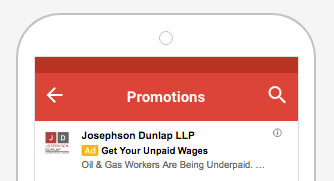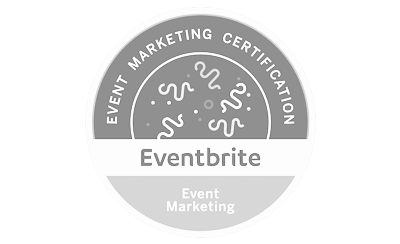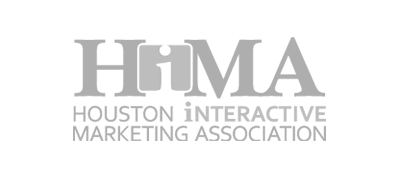
Google AdWords is one of the most popular digital advertising platforms in the world. It can help advertisers connect with potential customers all over the world or just down the street. Unfortunately for lawyers, a number of Google AdWords advertising policies make running AdWords campaigns practically impossible unless you know how to work with them. Below, we discuss four Google AdWords advertising policies lawyers need to know about to be successful with Google paid search advertising.
PHARMACEUTICALS
In the U.S., we’re used to seeing pharmaceutical company advertisements for different drugs and medical devices. However, this is actually pretty unusual. Only three countries in the world allow pharmaceutical companies to market directly to consumers. These countries are the U.S., Canada, and New Zealand. Despite these countries allowing pharmaceutical consumer marketing, there are still strict advertising regulations that pharmaceutical manufacturers must abide by.
The U.S. Food and Drug Administration (FDA), and the respective agencies in Canada and New Zealand impose these regulations, and Google imposes its own additional advertising policies. According to Google, “Some healthcare-related content can’t be advertised at all, while others can only be advertised if the advertiser is certified with Google and targets only approved countries.”
You might be wondering how this policy affects lawyers, but if your law firm engages in digital marketing efforts in order to acquire pharmaceutical or medical device cases, this policy can potentially keep you from advertising on Google at all. Using drug or medical device terminology in your ad text or on the website where the ads direct traffic will immediately restrict your ads. This applies to all ad formats – search ads, display ads, and video ads among others This is frustrating for lawyers because they are not trying to sell any medications or devices, but the use of pharmaceutical terms automatically restricts ads.
However, you can request an exception for your ads if the ads meet certain requirements. First of all, you will need to be very careful about your ad text. You don’t want a pharmaceutical term to be the primary focus of your ad. To help write your ad text, focus on the consumer exercising their rights, learning about their legal options, and any notable achievements of your law firm. The same goes for the website and webpage where the ad drives traffic. Google not only analyzes ad text, but also scrutinizes websites for adherence to its advertising policies. You might be tempted to pack your ad text and website with drug or device keywords related to the cases you are advertising for, but your ads will actually appear more often and perform better without too many of these terms.
PERSONALIZED ADVERTISING
Personalized advertising is my personal favorite type of advertising. As you may be able to guess by its name, personalized advertising is very personal. What this means in practice is that Google analyzes very specific user behavior and matches this behavior to relevant ads. Relevancy is a match made in heaven for users and advertisers. Users find content they are interested in, and advertisers find the users and potential customers they are looking for. One of the most popular forms of personalized advertising is a Gmail ad, which is essentially a type of Display Ad that appears in the Gmail application. On desktop devices, Gmail ads appear at the top of a user’s inbox and look like this:
On mobile devices, Gmail ads include your logo, and look like this:
Sounds great, right? Well don’t get too excited, because Google limits the type of content that can be analyzed as a part of personalized advertising. Google has always been very careful regarding exactly what user information it shares with advertisers; and, in a post-Cambridge Analytica world, this protection of privacy is even more important.
Google places several restrictions on personalized advertising. First of all, ads can’t include topics related to “personal hardships” or that might be considered “culturally sensitive.” Now these are pretty broad phrases, but it boils down to this: you can’t advertise gambling, alcohol, health conditions and treatments, medical procedures, personal failing, or traumatic experiences. This means many types of ads are not going to work. Any type of pharmaceutical content will not be allowed. Even though lawyers can advertise for drug and device cases using Search, Display, YouTube, and other forms of Google advertising, they cannot utilize personalized advertising. Additionally, ads targeting personal injury cases will also have trouble meeting Google’s strict advertising policies for personalized advertising.
However, this doesn’t mean that all personalized advertising is off limits. Law firms that want to utilize personalized advertising need to focus their targeting on users who are actively looking for a truck accident lawyer, rather than just users who were in a truck accident. Ad text and the website landing page should focus on providing information content. Ads that are too conspicuous about traumatic life events will struggle to get approved. Some of the most common types of personalized advertising includes: remarketing, Gmail ads, in-market audiences, specific demographic audiences and specific location targeting. Personal advertising also works very well for other types of cases like employment, business law, and insurance among others.
TRADEMARKS
Many law firms use Google AdWords to obtain clients with claims against specific companies or who have been affected by specific products, and this can cause issues with Google AdWords. Google works very hard to protect trademarks, so when advertisers use trademarked terms, it can cause problems. Luckily, Google does permit the use of trademarked terms in certain circumstances, including for resellers or sites simply providing information. Google will not allow advertisers to use others’ trademarks for competitive purposes. Additionally, Google will not approve ads with trademarked text that ask for “extensive information before displaying commercial information,” or ads with “landing pages that require users to provide extensive information before displaying commercial information.”
Trademark restrictions will only show up if the company with the trademark complains to Google about trademark abuse. Because of this, lawyers may or may not encounter trademark policy issues. If you do, your best course of action is to ensure your ad text and website content is purely informational. Focus on providing details about the case, and encourage users to seek more information by reaching out to your law firm. After doing this, you can request an exception from Google for your content.
DESTINATION REQUIREMENTS
One of the most common reasons Google ads are not approved has to do with violations in Google’s destination policies. Law firms often buy domains specific to the types of cases they want, which is a great idea, but it is very important to set these domains up correctly if you want to use them to run paid search ads. Google includes two types of URLs in ads: display URLs and destination URLs. A display URL is the URL that appears in the ad text and the destination URL is the URL where the user is actually taken when they click on the ad. Unlike in years past, now the display URL and destination URL have to be the same in order for Google to approve the associated ads.
Oftentimes, lawyers buy vanity URLs and point them to a page on another website. Google will not allow this because any type of redirect or domain masking causes ads to be disapproved. Advertising policies regarding display URLs and destination URLs have not always been this strict, but in an attempt to fight fake news, many advertisers, including Google and Facebook, now require matching display URLs and destination URLs.
Google AdWords Help
Google AdWords can be really frustrating for lawyers. Google’s Artificial Intelligence systems often wrongfully disapprove ads automatically because they are not capable of understanding ad intent. Because of this, lawyers will benefit from working with Certified Google AdWords Professionals who understand the nuances of Google’s advertising policies. The Google AdWords Certified Professionals at Stacey E. Burke, P.C. would be happy to help you use paid search advertising strategies to acquire new leads and clients. Call us today to schedule a consultation.















Leave a Comment